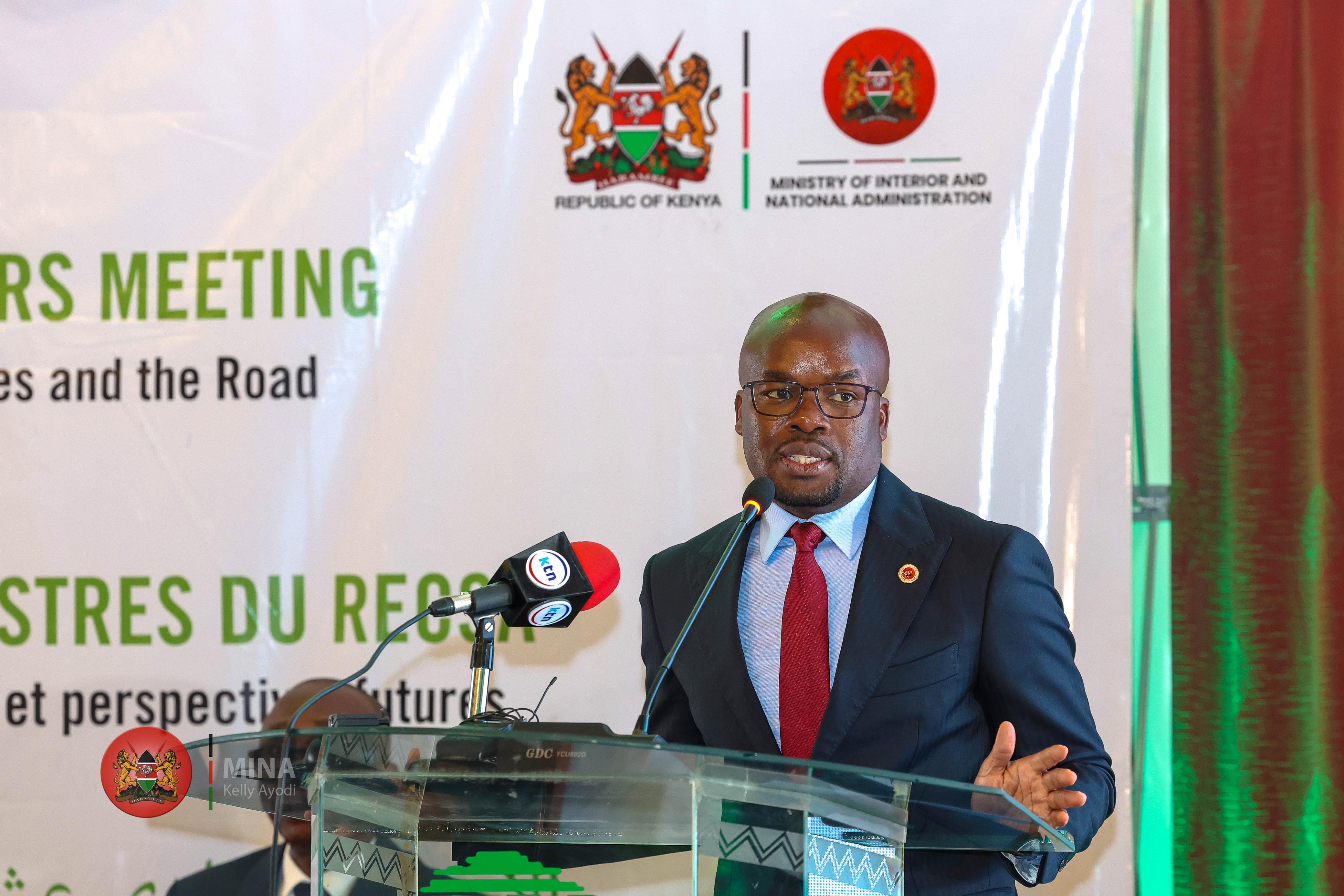
Kenya is challenging regional partners in the Great Lakes and Horn of Africa to move from policy promises to practical solutions in the fight against illicit arms.
The arms continue to destabilise communities and undermine development across the region.
Interior Principal Secretary Raymond Omollo asserted that it is high time the 15 Member States of the Regional Centre on Small Arms (RECSA) matched words with action, citing the urgent need for a united and coordinated response to the escalating regional threat.
Speaking at the opening of the RECSA Forum for Government Experts on SALW, Omollo emphasised that the problem lies less in policy gaps and more in persistent enforcement failures, porous borders, and the lack of coordinated regional response.
“We already understand the nature of the threat we're dealing with,” Omollo said.
“What we now require are practical, coordinated, and actionable responses to track and disrupt illicit arms flows, strengthen national control systems, and improve intelligence and information sharing across borders.”
He further noted that it is not merely the presence of illegal weapons, but the structural vulnerabilities within and between states that continue to fuel conflict, facilitate crime, and contribute to instability, humanitarian crises, and violence against civilian populations, including displacement.
He urged Member States to act with both urgency and unity, stressing that rhetorical commitments must now give way to tangible outcomes.
“It may sound like a cliché, but no single nation can overcome this crisis alone – and every delay results in more lives lost and more families displaced,” Omollo said.
“We must equip ourselves with the tools necessary for rapid and effective action.”
This year’s RECSA Forum for Government Experts coincides with the Centre’s 20th anniversary commemoration.
Despite existing and emerging challenges, Omollo stated that the anniversary also serves as a reminder of the significant progress achieved over the past two decades.
Omollo emphasised the importance of a critical approach and urged participants to “identify what works, what must change, and where we must focus our collective efforts.”
RECSA Executive Secretary Jean Pierre Betindji also underscored the Secretariat’s ongoing commitment to equitable capacity building across the region, noting that funding has been secured from the Government of Austria to roll out Physical Security and Stockpile Management (PSSM) training for Francophone member states over the next five years.
“This initiative builds upon the success of similar trainings for our Anglophone member states, where over 500 officers have already been trained,” Betindji said.
“By extending this opportunity to all our members, we are strengthening the security infrastructure of the entire RECSA region.”
According to Director of the Kenya National Focal Point on SALW, Jacinta Muthoni, the team of experts will deliberate on key reports assessing the region’s progress in arms control, including the implementation of past Council of Ministers’resolutions, the Nairobi Protocol, and the activities of the RECSA Secretariat from July 2023 to June 2025.
The Forum will also consider recommendations on the review of the RECSA founding Agreement and financing mechanism, aimed at ensuring institutional relevance and sustainable resource mobilisation.













